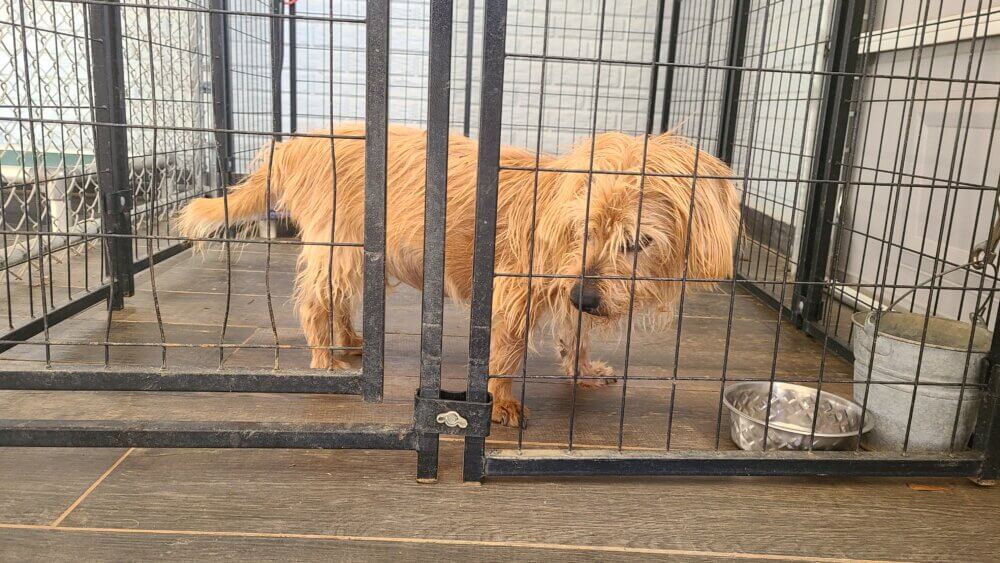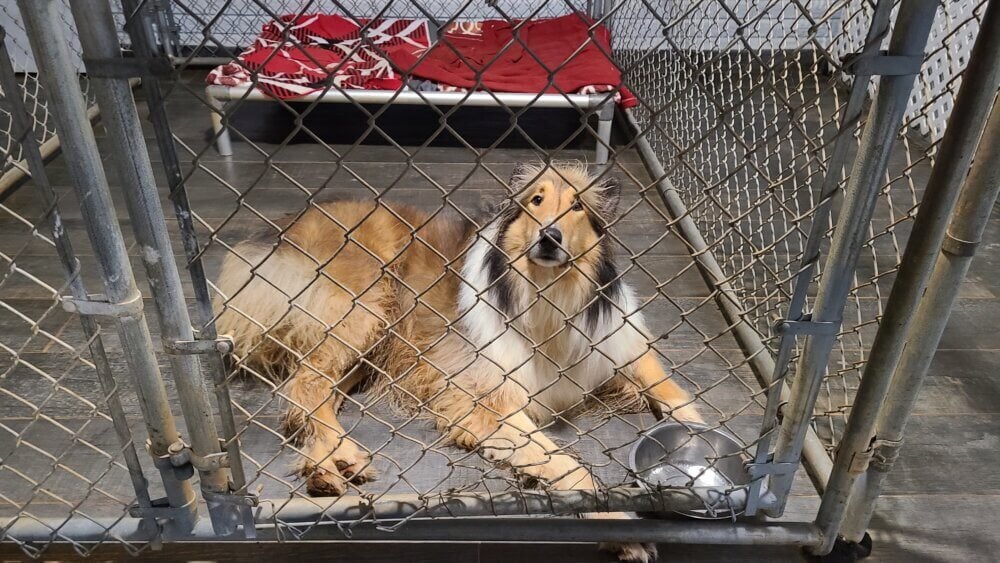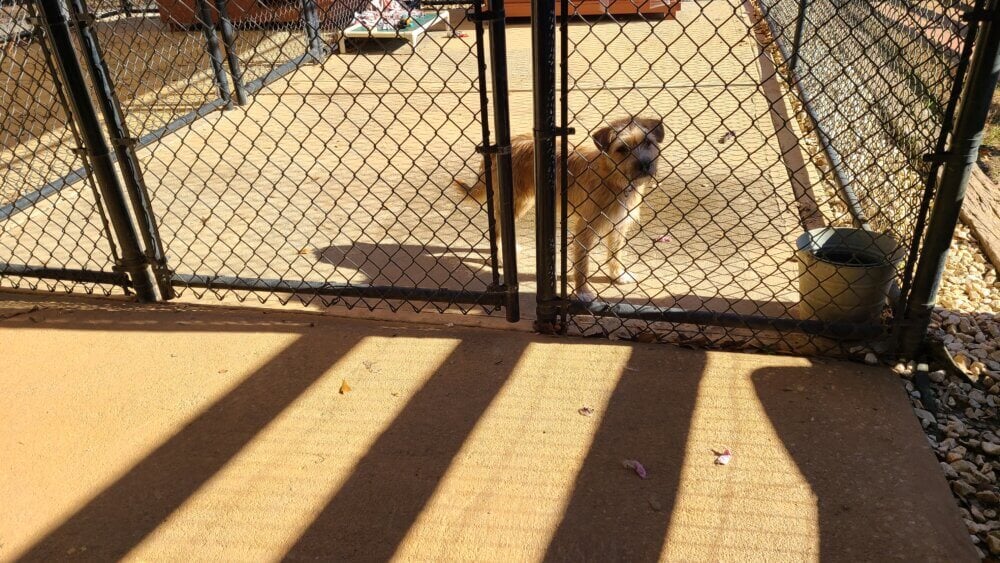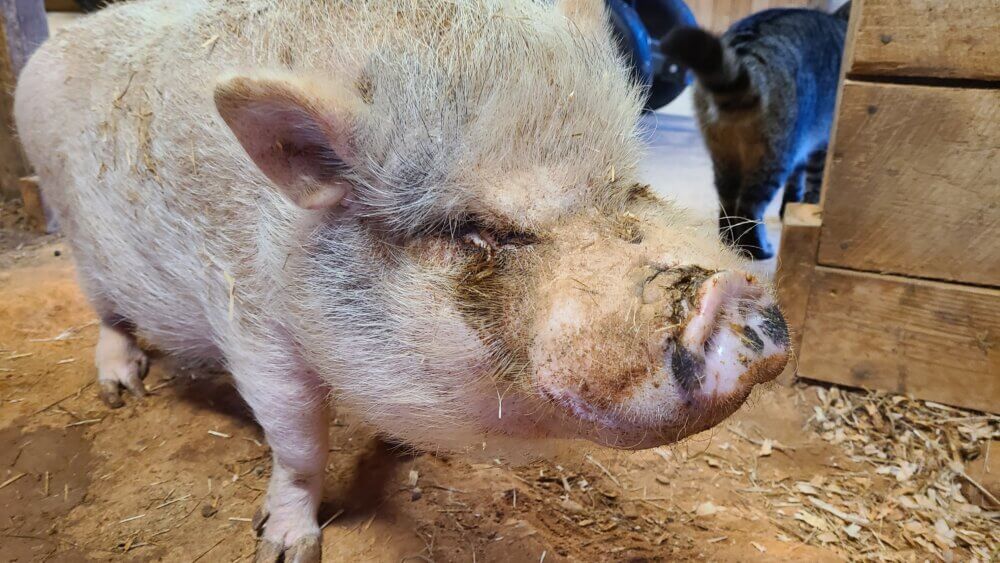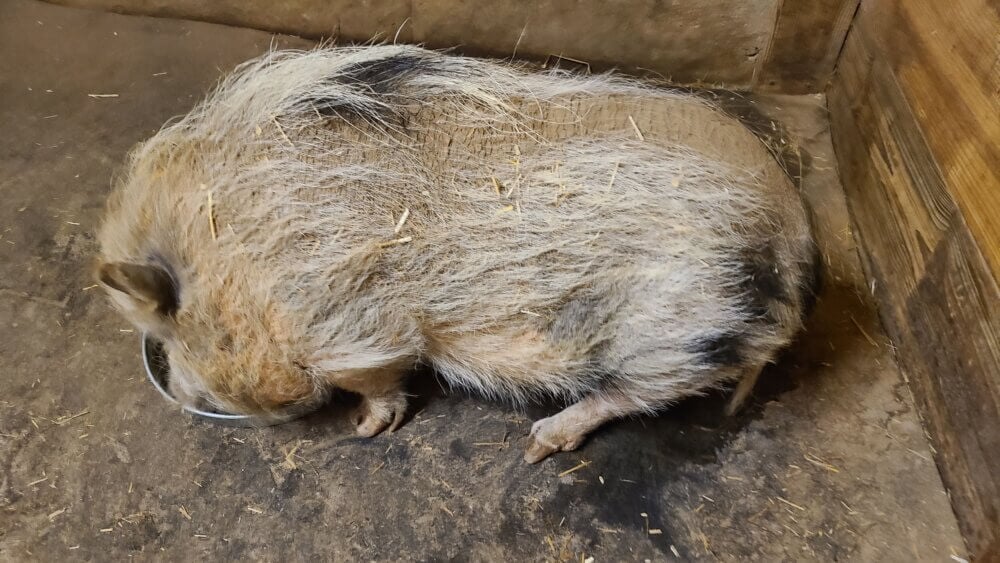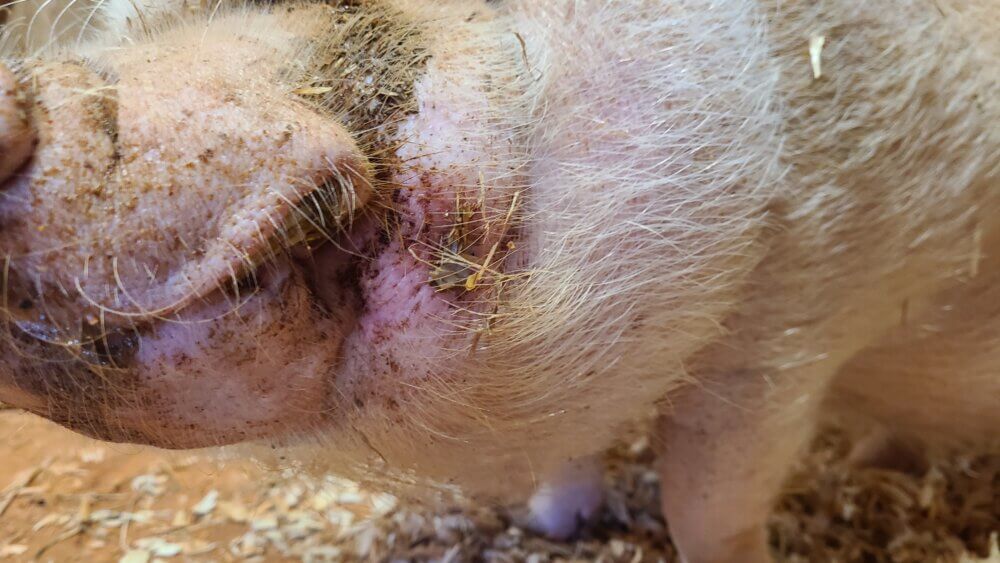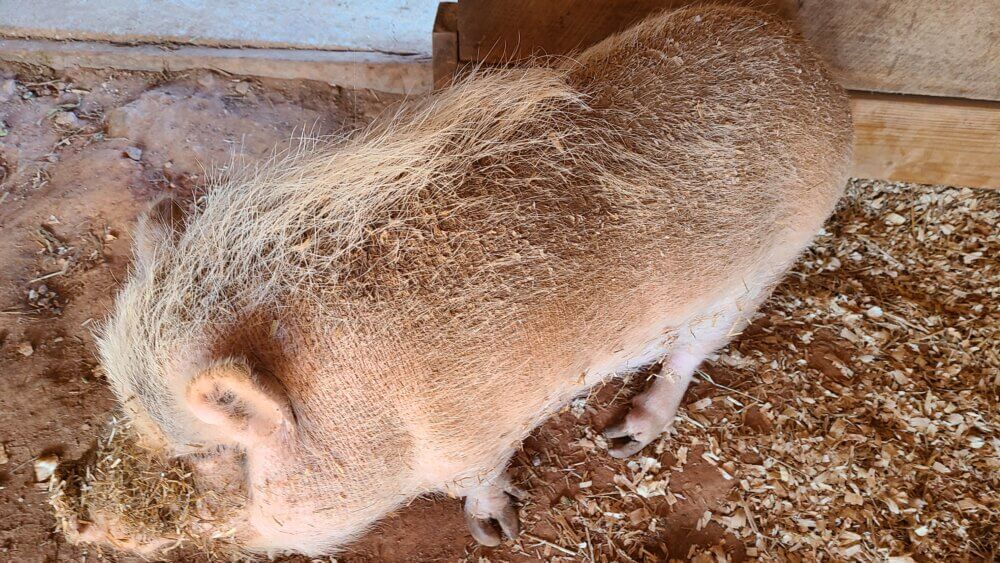PETA Goes Behind the Scenes: Animal Suffering Is Business as Usual at Supplier to Major Film and Television Studios
A PETA undercover investigation into Atlanta Film Animals (AFA)—a business that trains and provides animals for the film, television, and advertising industries—revealed that behind the scenes, workers denied cats and other animals food using antiquated training methods, deprived elderly pigs of veterinary care, and warehoused dogs in cold, barren kennels.
“She’s a total bitch!”
“Fucking whore“
That’s how a worker at AFA—which has provided animals for major studios, including Disney, Netflix, Universal Pictures, and Warner Bros.—crudely referred to Cookie, a 60-year old cockatoo who had plucked her own chest bald due to severe anxiety and the stress of near-constant confinement. In nature, cockatoos fly many miles a day and spend most of their time foraging for berries, seeds, and nuts with their flock, but AFA forced Cookie to spend her days and nights unable to fly, socialize freely, or partake in her other natural behaviors.
Atlanta Film Animals trainers’ credits include movies such as Cruella, Lady and the Tramp, Where the Crawdads Sing, and Strays and television shows like Will Trent.
If “You’re Not Hungry, You’re Not Gonna Work”
Atlanta Film Animals staff routinely denied animals food using outdated “training” techniques to prepare them for roles in productions. A worker said that AFA restricted cats Barnaby and Zeppelin’s food while training them for the television show Will Trent, because if the two cats weren’t “hungry,” they were “not gonna work.” She explained that trainers would not feed dogs in the morning if they planned to train them that day “because you want them to want something.”

A supervisor said that trainers “basically starve” birds. Trainers obsessed over keeping animals—even skunks—at the “right” weight so they would be hungry enough to perform for food.

Atlanta Film Animals Left “Man’s Best Friend” in the Cold, Kept Cats Crated
Thirteen-year-old dog Frankie—who was apparently used in the movie Strays—was blind, deaf, and suffered from heart failure. But rather than allowing Frankie to spend his golden years in a comfortable home with a loving family, AFA kept him and other dogs in an unheated garage like unused props, even as temperatures dropped as low as 35 degrees Fahrenheit. Two more dogs were left outside overnight when the temperature dropped to 14 degrees—one with only a single blanket (which could become wet and freeze).
AFA reportedly obtained a dog named Winnie from a shelter to use her in productions, including a touring Annie musical. In Annie, Sandy the dog is the title character’s best friend, but off stage, Winnie was left outside all day in a barren kennel.
Staff routinely crated a cat named Shiva all day, sometimes with a filthy litterbox and vomit on her blankets. They kept tabby cats Snap, Crackle, and Pop in metal crates when they weren’t being trained to perform tricks.

Atlanta Film Animals Staff Denied “Retired” Animals Veterinary and Other Basic Care
Many animals at AFA were reportedly “retired” from use in productions, which often meant constant confinement and inadequate care.
Elderly pigs Herbie and Fiona were “retired” from a Universal Studios theme park live-action show. Management denied Herbie veterinary care for a facial abscess that oozed white discharge, claiming that they couldn’t “do anything for” him because pigs are “farm animals.” A supervisor said that she “popped” the abscess instead.
Herbie and Fiona both struggled to walk, limping on overgrown hooves that the company failed to trim. Staff fed pigs moldy produce and putrid “compost,” including tomatoes a worker said were being eaten by rats.
Workers kept Maya, Candy, and Spanky—three capuchin monkeys who a manager said were “retired”—in waste-strewn enclosures that reportedly went uncleaned for four days in a row. Maya and Candy were confined together even though Maya apparently prevented Candy her from eating.

A cabinet containing blankets and other supplies for the monkeys was littered with rodent feces. A worker explained that there was “no water at all” to the monkey enclosures for several days after water pipes froze. The same worker repeatedly called Spanky a “psycho.”


Birds Stressed From Head to Toe
A supervisor said that Cookie—a 60-year-old cockatoo previously used in a Universal Studios theme park live-action show—plucked her feathers out due to the anxiety of being moved from place to place. Despite her obvious mental distress—and her featherless chest, neck, and legs—AFA staff kept her in a barren cage, often with only a single toy. A worker called Cookie a “fucking whore” and a “bitch,” and said that she punished Sherlock, another cockatoo, by leaving his food within sight—but out of reach—for hours.

Many chickens—kept in a barn stall that often went uncleaned and that a worker said was “drenched” every time it rained—had scaly legs and feet, some of which were swollen and even bloody. The worker said the chickens had leg mites and bumblefoot—a painful infection caused by bacteria found in wet, dirty bedding—but that they had not been seen by a veterinarian.

Same Old Suffering
If all this misery sounds familiar, it should—Atlanta Film Animals is a branch of Birds and Animals Unlimited (BAU), operated by Hollywood animal trainer Gary Gero. In 2016, PETA investigated BAU and found animal suffering and deprivation nearly identical to that at AFA, including pigs with untreated illnesses, cats virtually starved for roles, animals relegated to filthy enclosures, and dogs kept in cold, barren kennels.
It’s time for studios, producers, and audiences to realize that off set, animals used in productions aren’t cuddled on the couch with their trainers. Instead, animals found at AFA and BAU were deprived and imprisoned. This is Hollywood for animals.

You Can Help Animals Used in Film and Television
Write to or comment on the social media pages of your favorite TV networks and movie studios to tell them why you don’t want to see animals used in their productions, and share this investigation so that others can see what happens to animals used in film and TV. You can also help stop this suffering by never buying a ticket to a movie that exploits animals. If you see an animal being used in a current film or TV production or witness animal abuse or neglect on set or at a training compound, please contact PETA right away.

